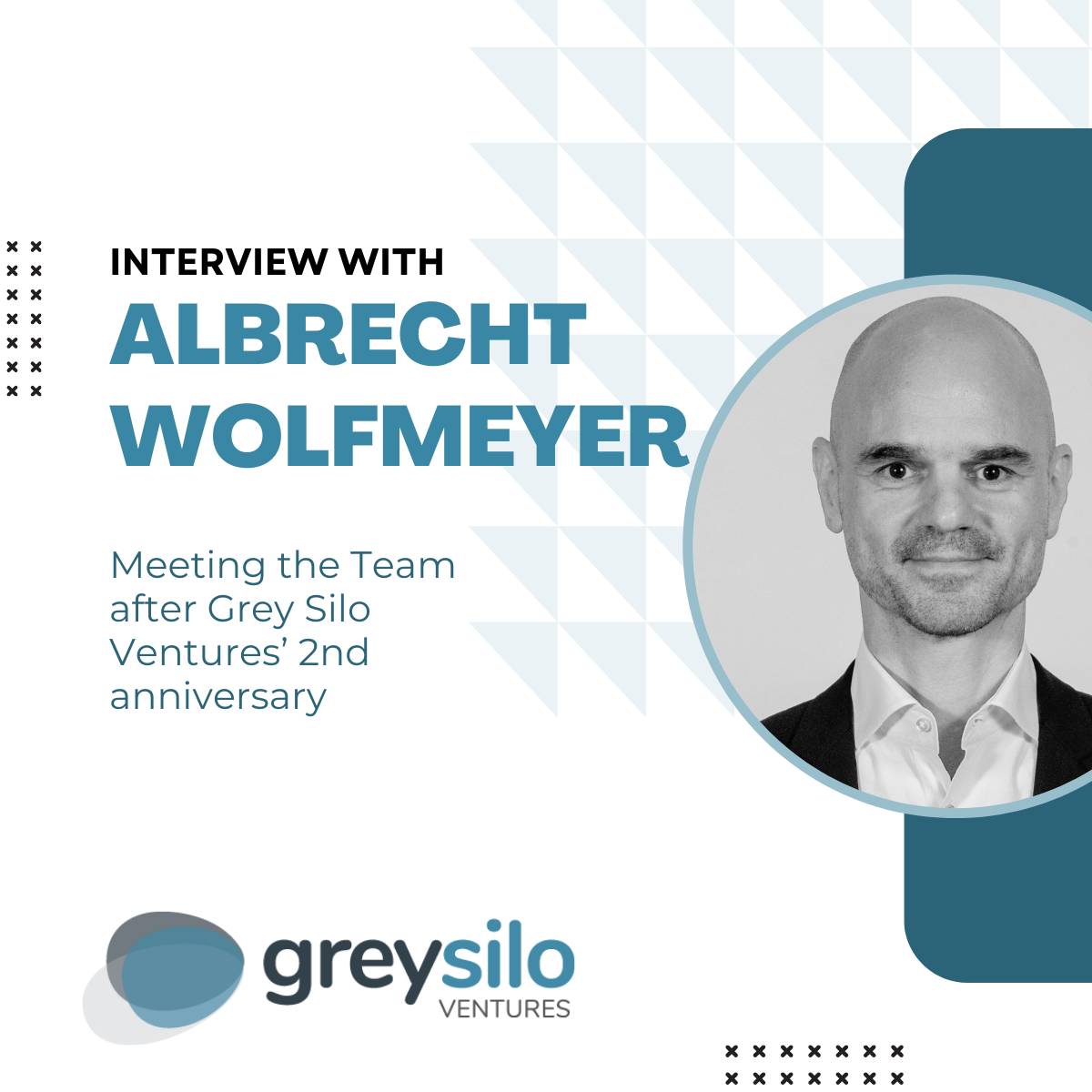
Meeting the team for Grey Silo Ventures’ 2nd anniversary: Albrecht Wolfmeyer
Two years after the birth of Grey Silo Ventures we explore the developments in the food tech sector, and the challenges behind the development of innovative functional ingredients and innovation in general.
In the third interview to the members of our Advisory Board we asked Albrecht Wolfmeyer, Director at ProVeg Incubator, to explain his vision to build a truly sustainable agrifood sector and his opinion on some of the most promising technologies within ag-tech and functional ingredients.
- How does Grey Silo Ventures differentiate its investment strategy within the food-tech and ag-tech sectors compared to traditional venture capital firms, considering the unique challenges and opportunities these industries present?
Now, more than ever, startups in the food and ag-tech space need partners that can add more than funding alone. Cereal Docks Group, the company behind Grey Silo Ventures, is a pioneer in the agriculture market. Cereal Docks has a unique track record of more than 40 years of growth and innovation. The family-run venture traditionally links agriculture and food markets. Based on the heritage, vision and values of Cereal Docks, Cereal Docks in 2023 launched its corporate venture arm Grey Silo Ventures. The ambitious mission of Grey Silo Ventures is to help build a truly sustainable agrifood sector. Startups that partner with Grey Silo can benefit from the extensive entrepreneurial, scientific and practical experience of Cereal Docks. Talking to seasoned experts like Cereal Docks’ Operations Director Luigi Nataloni or Head of Innovation Enrico Costanzo can provide invaluable insights to startups. Getting access to the outstanding, modern infrastructure and vast networks may help young companies scale faster and launch earlier, which might be a unique advantage on their journey.
- Could you discuss a recent successful investment or partnership within the food-tech and ag-tech sectors that Grey Silo Ventures has been involved in, and what factors contributed to its success?
Grey Silo Ventures has made a couple of select strategic investments since they started out. Consider the Berlin-based startup Nosh Biofoods. Nosh leverages the power of fermentation and fungi to produce highly nutritional and functional ingredients for the food industry – in particular meat alternatives – and other applications. Nosh’s technological platform to produce their clean-label and healthy ingredients can be a game-changer in the transition towards a more sustainable food system. This makes it a perfect fit for Grey Silo Ventures. With its hands-on and founder-focused approach, Grey Silo can help Nosh in their mission to replace conventional proteins with more sustainable options.
- What are in your opinion some of the most promising technologies within ag-tech and functional ingredients that could make the biggest impact on the current food systems?
It is inevitable to make our food and agriculture systems more sustainable. Grey Silo supports the development of high-impact technologies that can pave the way towards such a transformation. This includes biomass and precision fermentation as well as molecular farming and cellular agriculture. Plant cell culture is another example of a very promising technological approach. With Aethera Biotech, the Cereal Docks Group has been building a pioneer in that space over the last couple of years. As for functional ingredients, apart from non-animal proteins – e.g. caseins derived from precision fermentation -, fat or cocoa alternatives are especially promising as they can have a huge impact on our food systems.
- What are the fundamentals pillars and characteristics that an early-stage company in agri-food tech should mandatorily have in 2024 in order to secure funding and keep growing?
Smart, resilient, hands-on founders and teams with complementary skills make all the difference. Such teams need to show how they can build a compelling IP and product strategy. What’s crucial now is that the startup shows a clear understanding of the market they are operating in. The founders must build a route to commercialization from the very beginning – irrespective of their business model and product. Without such an understanding, mindset and plan it will be very challenging to survive on the market.

